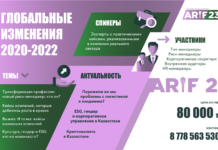AI and auditing: Planning and scoping
Applying artificial intelligence to risk assessments and scoping can lead to a more comprehensive plan focusing on the most critical risks. Using AI allows auditors to factor in different metrics more efficiently.
Audit risk assessments
In the past, audit risk assessment relied heavily on subjective data gathered during extensive, time-consuming in-person interviews. Over the years, internal auditors have adapted the interviews into self-assessments to reach more stakeholders and collect data more efficiently while incorporating concrete metrics like financial and operational data. With artificial intelligence audit planning, auditors have two popular options. First, auditors can prompt natural language processing (NLP) tools to provide a list of risks to expect in an area. Many will leverage this option when approaching a process for the first time. Next, auditors can use AI to analyze large datasets to identify patterns, trends, and anomalies that may indicate potential risks to help prioritize their focus areas. By setting up a continuous data ingestion model along with thresholds set based on key risk indicators, the audit team moves from periodic…




































